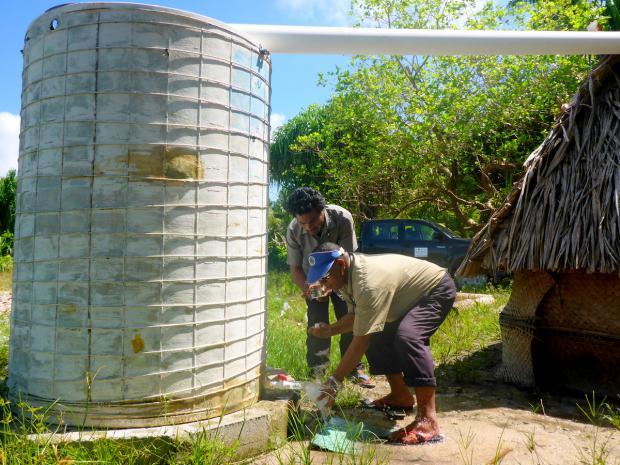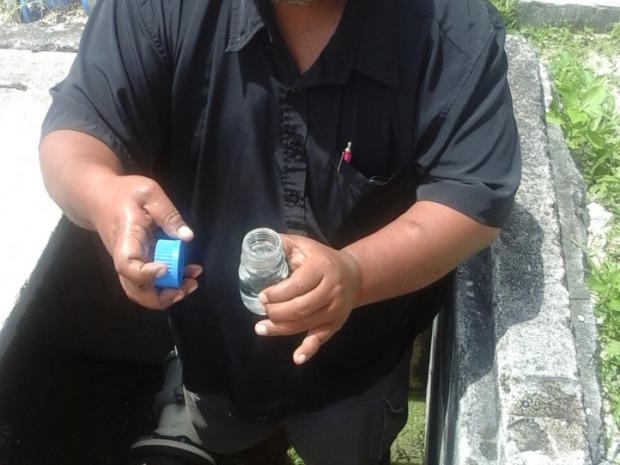South-south exchange to inform water quality monitoring in Nauru
Discussion details

Kiribati monitoring team collecting samples
Nauru is aiming to create a robust water quality monitoring programme to better manage its drinking water resources. In order to learn the best way to do this in the Pacific context, Mr. Jaden Agir, Nauru’s Water Strategy Manager, Department of Commerce, Industry and Environment (CIE), spent two weeks in Kiribati in December 2015 and in February 2016 attached to the Environmental Health Unit of the Kiribati Ministry of Health and Medical Services.
The purpose of this south-south exchange was to see first-hand the process and equipment involved in water quality monitoring, such as learning about the appropriate parameters to test for and how to evaluate the results. This exchange was made possible by the Pacific Community’s (SPC) Global Climate Change Alliance: Pacific Small Island States (GCCA: PSIS) initiative, supported by the European Union.
During the attachment, Jaden Agir accompanied the Environmental Health Unit on their routine testing of public utility, rainwater and well water around South Tarawa. He then participated in sample analysis at the Public Health Laboratory as well as entering the results in Kiribati’s database.
“It was useful for me to observe firsthand the monthly water quality monitoring and data entry with the results then being compared with Kiribati standards, which are related to World Health Organization’s standards,” he said.
“I was very impressed by the capacity of the Environmental Health Unit to provide a quick response to any disease outbreak and would like to develop a similar response mechanism here in Nauru.”

Jaden Agir collecting a water sample in Kiribati
Some of the core functions of Nauru’s CIE Department include monitoring, planning and management of water resource, centralized data storage, and the implementation of a long-term water master plan the preparation of which was supported by the GCCA: PSIS project.
“The visit to Kiribati was particularly useful because water resources in Kiribati are extremely scarce very like the situation in Nauru so it was good to work with another country that experiences similar challenges,” added Agir.
Through the GCCA: PSIS project, such south-south exchanges have been found to be extremely useful for the peer-to-peer exchange of knowledge and experiences between countries.
Background:
The Global Climate Change Alliance: Pacific Small Island States (GCCA:PSIS) project is a €11.4 million European Union supported project, implemented regionally in partnership with SPC and nationally by each of the nine participating governments in Cook Islands, Federated States of Micronesia, Kiribati, Marshall Islands, Nauru, Niue, Palau, Tonga and Tuvalu.
More information on this climate change project is available online at:
Log in with your EU Login account to post or comment on the platform.